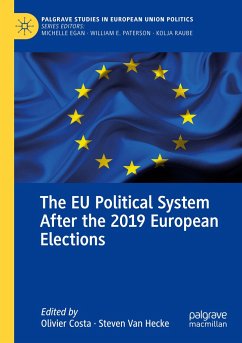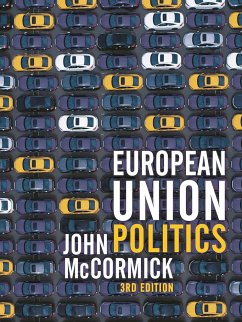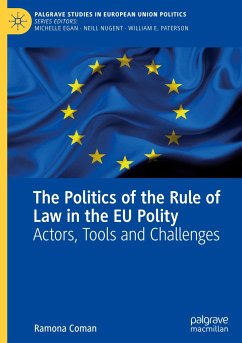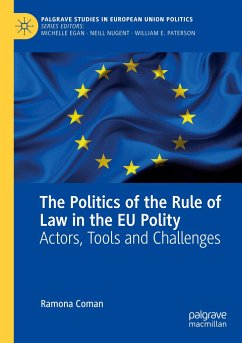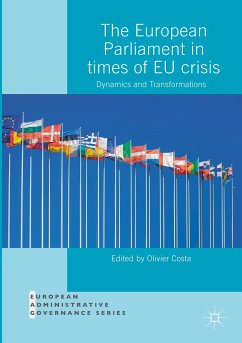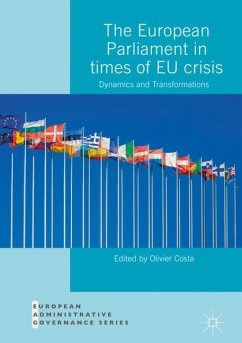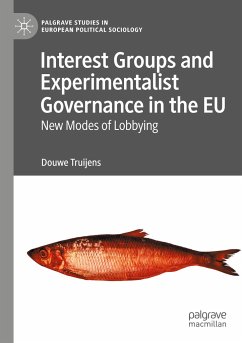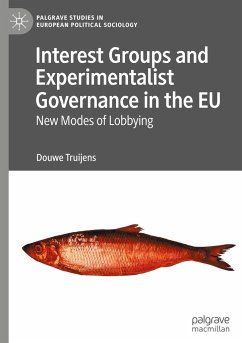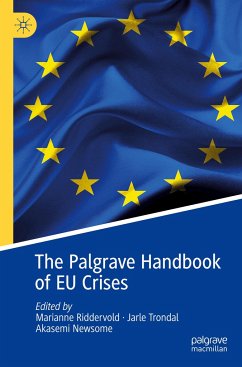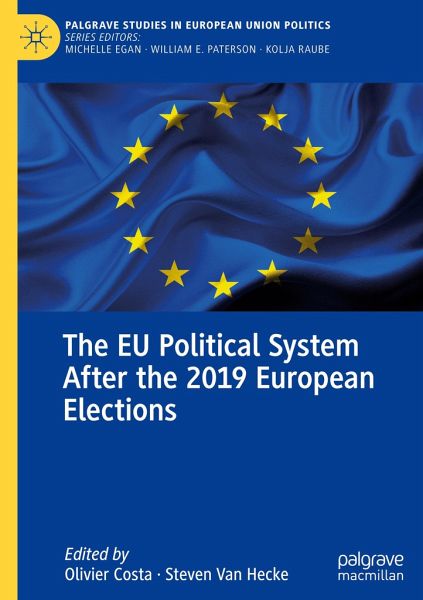
The EU Political System After the 2019 European Elections

PAYBACK Punkte
57 °P sammeln!
This book assesses the impact of the May 2019 European elections as well as the Covid-19 pandemic on the EU's politics, institutions, and policies. Special attention is paid to the impact of these events on the different political forces as well as on the Union's institutional balance, its priorities and the reform of its budget and policies. Because of the many post-electoral uncertainties, the book also takes into account how the relations between the Parliament, the European Council and the new Commission have developed. Furthermore, it analyses the capacity of the von der Leyen Commission ...
This book assesses the impact of the May 2019 European elections as well as the Covid-19 pandemic on the EU's politics, institutions, and policies. Special attention is paid to the impact of these events on the different political forces as well as on the Union's institutional balance, its priorities and the reform of its budget and policies. Because of the many post-electoral uncertainties, the book also takes into account how the relations between the Parliament, the European Council and the new Commission have developed. Furthermore, it analyses the capacity of the von der Leyen Commission to implement an ambitious programme, especially in the context of an unfolding pandemic. The objective of this book is to study the 2019 electoral sequence (parliamentary elections, appointment of EU institutions leaders, investiture of the Commission, new legislative programme) and determine its influence on the main institutional and political challenges for the 2019-2024 legislature. In other words, the volume deals with the question of who holds the EU's leadership after the 2019 elections and how it handles the 2020-2021 pandemic.





